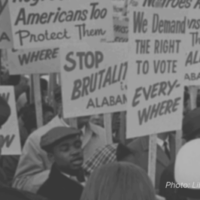Following is a statement from Rebecca Dixon, executive director of the National Employment Law Project, welcoming today’s release of a groundbreaking new report, Clean Slate for Worker Power: Building a Just Economy and Democracy, issued by Harvard Law School’s Labor and Worklife Program:
“Two year ago, the ‘Clean Slate for Worker Power’ project began with a question: What would labor law look like if, starting from a clean slate, it was designed to empower working people to build a truly equitable American democracy and a genuinely equitable American economy?
“NELP participated in this commendable effort, which brought together worker rights movement leaders, government officials, academics, and international experts to assess the current state of worker power, bargaining, job conditions, and labor law in the United States. Importantly, the report provides an overview of the systemic and racist historical exclusions of Black and brown workers, and the long-standing impacts those exclusions have had on workers of color that persist today.
“Despite racist exclusions that have harmed generations of Black people—most of all women—and workers of color, including immigrants, we reaffirm that all workers are worthy of rights, dignity, and protection under the law. The movement for worker justice must work to significantly overhaul U.S. labor laws and continue to center and amplify the voices and demands of workers who have historically been on the margins of the traditional labor movement.
“Too many workers today lack access to collective action and bargaining, and corporations are evading responsibility for their workers and the communities where they are located. Discrimination in hiring and job placements and retaliation by companies will continue without strong reforms and a commitment to upholding labor laws for all working people.
“NELP looks forward to working with worker-led organizations and other allies within the labor movement to promote collective action for all workers and inclusion of all people historically excluded from the law’s protections.”
###



